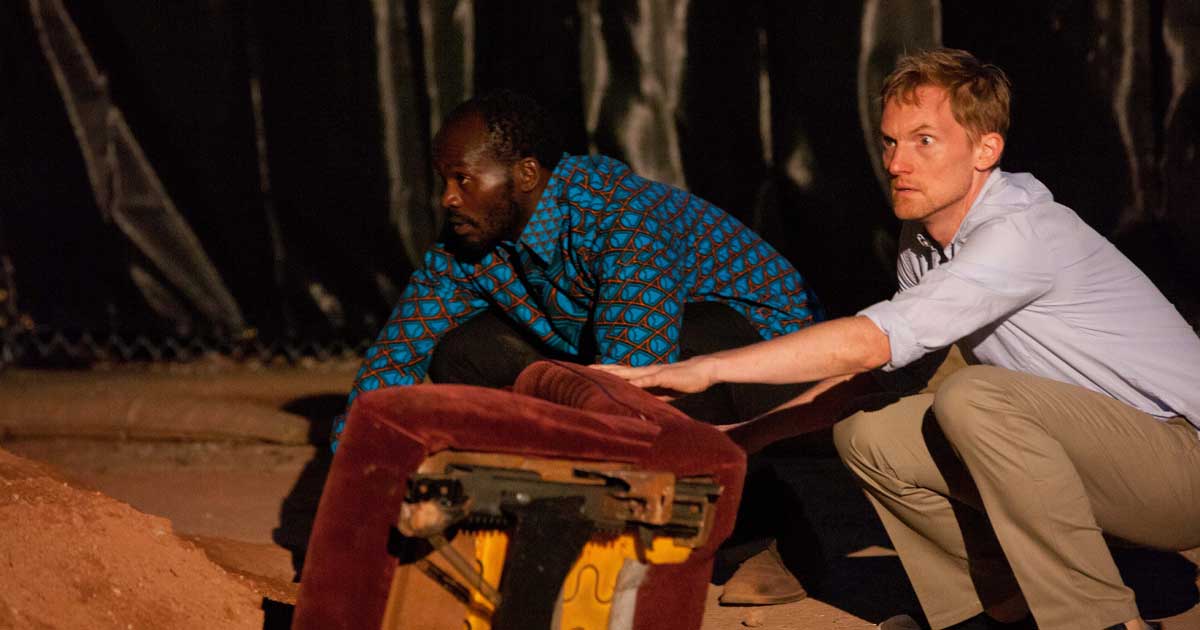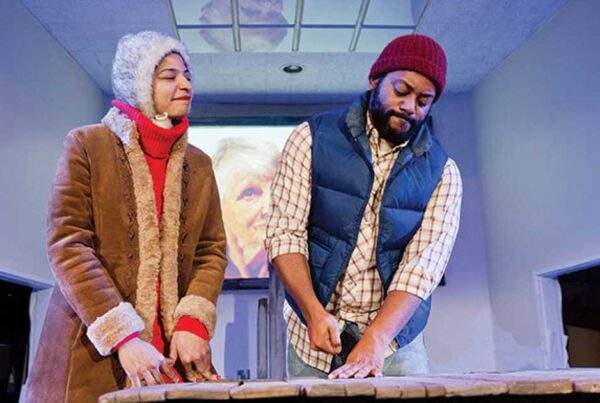
Pittsburgh City Paper – This production comes off as forced and overly grand.
Big meals are not always filling, especially when they’re pumped full of empty calories. I came away from Quantum Theatre and En Garde Arts’ world premiere of Red Hills feeling like I had eaten an enormous and visually sensational meal, but was still remarkably hungry.
Hollowness might be the salient metaphor of this show, which is staged in an immense recycling warehouse in the Strip District. One suspects that playwright Sean Christopher Lewis had just read Waiting for Godot before writing this work. There are two main characters, a mound of dirt, and a central object — in this case, a broken-down car instead of a sorry tree. Yes, Deb O’s apocalyptic set does offer a few more prop cars and some shrubbery, but any sense of dramatic intensity is thoroughly diluted by the massive space. It’s like having a candle-lit dinner for two in an airplane hangar.
Before seating, the audience is divided in half and given a talk by one of the principal characters, in our case David, who introduces himself as a professor, and then drones on like a used-car salesman reminiscing about his last vacation in Maui.
This becomes portentous, as the show’s pace is laborious, like a train that never picks up speed. While the problem may be rooted in the script, director Katie Pearl tries to turn this bug into a feature, perhaps banking on the assumption that eschewing any intermission would in itself produce energy. It doesn’t.
Scott Parkinson plays David, who travels back to Rwanda 20 years after having visited there and written a book about the experience. He looks like director François Truffaut when he acted in his own films, often putting his hands in his pockets or folding them over his chest, as if he doesn’t know what to do with them.
Patrick J. Ssenjovu delivers an impressive performance with great range as the character God’s Blessing, a Rwandan who reads David’s book and summons him back by informing him that what he wrote “was a lie.”
The real stars of this show, however, are the technical crew. Sound designer Steve Shapiro has to overcome tremendous environmental obstacles to achieve a stunning array of acoustic embellishments, from subtle insect chirping to battle-scene clamor. And C. Todd Brown’s lighting designs are masterful across a space that is more landscape than stage. Fellini would have loved him.
Red Hills does tell us a lot about the Rwandan genocide, and the very complicated issues that have evolved in its aftermath, but the impact of this production comes off as forced and overly grand, like the third Godfather film, which tried to make itself into an opera. The giant video overlays and faux-noir shadow projections of axes and machetes are just too inflated, like special-effects porn.
It’s certainly spectacular, and I’m a huge fan of Quantum’s site-specific adventures. But this one has unfortunately jumped the shark…




